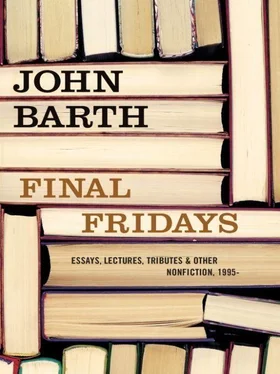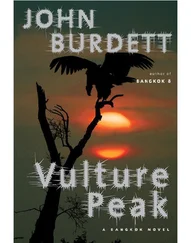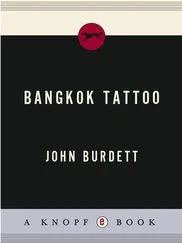So it is, more or less, my friends, with all of us: a good case for writing short stories and lyric poems, perhaps, unless your blood-replacement capacity is that of an Anne Rice male-lead vampire. Just as Senator Daniel Patrick Moynihan suggested a few years ago that the efficient cause of American violence isn’t guns but ammunition, so maybe the pen/pencil/PowerBook question ought to be Skrip, Quink, ribbon, bubble-jet, or laser? Blood-group O, A, or B? There is much more, by the way, to that exemplary Kathapitha , or Story of the Story, as Volume One of Somadeva’s ten-volume abridgment of the surviving one-seventh of The Ocean of the Streams of Story is called. But I don’t want to spoil the pleasure of your reading it for yourself.
Once upon a time a quarter-century ago, as I was driving the poet John Ashbery to his scheduled reading-plus-Q&A at Johns Hopkins, he wondered aloud to me what sort of questions he was likely to be asked. “The usual, no doubt,” I assured him: “Like, Do you write with a pen or a pencil? Stuff like that.” “Oh, I hope they ask that one,” Ashbery said; “I like that one!”
Truth to tell, so do I. To get right down to it, breath-bated auditors, I write my fiction with a much-beloved old British Parker 51 fountain pen deployed in an even older three-ring looseleaf binder. 6From there, at morning’s end, the day’s “muscular cursive” is Macintoshed for extensive editing and revision. And I compose my nonfiction, this lecture included, mainly on Fridays, with a MontBlanc Meisterstück 146 fountain pen bequeathed me by a beloved Spanish friend and critic 7upon his untimely death from stomach cancer, he having chosen for his epitaph this line from a story of mine about a skeptical spermatozoon: “It is we spent old swimmers, disabused of every illusion, who are most vulnerable to dreams.” 8And I deploy that Meisterstück in an altogether different, history-free binder before Macintoshing, et cetera. Lately, however, I seem to have taken to non-ficting directly on the word-processor, without that cursive foreplay. Make of that datum what you will.
Q: Have any of your novels been made into movies?
A: I always used to answer No to that question, even when some film buff claimed to have seen The End of the Road back in the early 1970s, with Stacey Keach playing Jacob Horner, Harris Yulin as Joe Morgan, Dorothy Tristan as Rennie Morgan, and James Earl Jones as the capital-D Doctor. Despite my name in the credits and my modest payment for the film rights, I deny that that wretched flick has anything to do with my rigorous little 1958 novel of the same title and dramatis personae. (The movie critic John Simon declared at the time, correctly, that the principal difference between the novel and film versions of the story is that whereas my novel concludes with a harrowing abortion, the film is a harrowing abortion from start to finish.) But what was the question for ? I used to wonder, as I did with the pen-or-pencil one. I couldn’t help translating it to mean “Reading’s a drag, man, but I dig movies, so I’ll maybe catch you out at the nabes and see if you’re on my wavelength.”
As you can tell from that vintage slang, the question as given is dated. Its current version would be “Are any of your novels available as videos?” 9The answer is still No, and I can’t recommend the audiocassette versions, either. The updated question, I fear, has to be translated “Hauling out to the Cineplex has gotten to be almost as much of a bummer as reading books, but I do like to slug the old VCR if there’s nothing on Cable.”
What can a mere novelist say? Echoing Robert Frost’s famous definition of poetry as “that which gets lost in translation,” William H. Gass defines story as “that which is extracted from a novel to make a movie.” I agree, I guess, although for me the element of story remains first among equals in the ingredients of fiction. But in a good novel (it goes without saying) the story is truly inseparable from the language it’s told in and the voice that tells it. Movies are, literally, another story altogether, and videocassettes another story yet. As it happens, the best I can say even for a good movie-adaptation of a good novel — such as Anthony Minghella’s film of Michael Ondaatje’s The English Patient or Emma Thompson’s screenplay for Jane Austen’s Sense and Sensibility— is what Thomas Mann said about reading Shakespeare in German translation: “It’s like taking a hundred thousand dollars from a millionaire,” Mann declared: “He remains a very rich man.”
It now appears evident that what movies and network television did to live theater earlier in this century (not to mention what they did to the audience for printed fiction), the VCR and cable TV are doing to the movie houses and to some extent to the film industry. That’s just a fact of technological life. Of more interest to me is a different analogy: If movies and television have affected the art of prose fiction in the 20th century in something like the way that still photography affected the art of painting in the latter 19th, then we can reasonably expect that the development of interactive television and high-tech “virtualism” in the century to come will have a comparable effect on movies and videos as we know them today. We are told by another of my fellow American scribblers, Robert Coover, that electronic fiction and computer hypertext generally will have a comparable revolutionary impact on what remains of printed-book culture, with its obsolescent notions of author, reader, text, publisher, copyright, and the like. 10I confess that I won’t at all regret missing that particular technological revolution, which along with electronic virtuality offers to do to the audience for “p-fiction” what the rise of the novel since the 17th century did to the audience for poetry. It gives me some comfort to note, however, that while in my lifetime I’ve had to replace my 78 rpm records with 45s and then with 33.3 LPs, and then those with audiocassettes and then those with compact disks, each time discarding and expensively rebuilding the Barths’ recorded-music library, the oldest volumes in our book library remain by and large as conveniently accessible as they were on their publication-day, perhaps centuries ago. If fewer and fewer people read printed fiction in the century to come, that won’t be because the marvelously low-tech, high-protein medium of the book is outmoded, but because the pleasures of reading will have been displaced by glitzy and evanescent high-tech distractions for which civilization may on balance be the poorer. If thus it must go, then I shall with some small relief go first.
That curmudgeonly sentiment brings me to the last of these evolving but nevertheless routine questions, after which we’ll move on to a couple of less routine ones and then have done.
Q: What effect does your university teaching have on your novels?
A: My reply to this gee-whizzer used to be, “It delays their completion.” In this case, however, although the question remains the same, the respondent’s altered circumstances require a different answer. As afore-established, I was indeed for four decades a full-time teacher as well as a full-time writer, and for the first two of those four decades I was a full-time parent as well — when you’re young, you can full-time it on several fronts at once. Then my children grew up and (just as my late friend and I had foretold) my academic workload eased off, so that for several years I taught only one semester out of two, and for a few years after that only one graduate-level seminar every second semester. More lately, for the first time since kindergarten I’ve been out of the classroom altogether. To my total unsurprise, in these progressively time-richer circumstances my literary output has remained almost exactly what it was 40 years ago, when I was teaching four sections of freshman composition, six days a week, and helping to raise three small children, and moonlighting in a dance band on weekends for extra cash. Back then I stole time to write, and my larceny was sufficiently grand that I was able to go straight later on. Now that I have all the writing-time I want — in a day, in a week, in a year, if never in a lifetime — I find that although I enjoy generating sentences and stories as much as ever, I don’t spend any more time at it than I did when I wished that I had a lot more time to spend. One’s musely metabolism, evidently, is what it is almost regardless of circumstances, and so I infer that what used to delay the completion of my novels was not university teaching after all; it was (and it remains) living that part of life that doesn’t consist of writing fiction — the part of life without which, in my case anyhow, there wouldn’t be any fiction to write, even though that fiction seldom has to do directly with its author’s biographical experience.
Читать дальше












